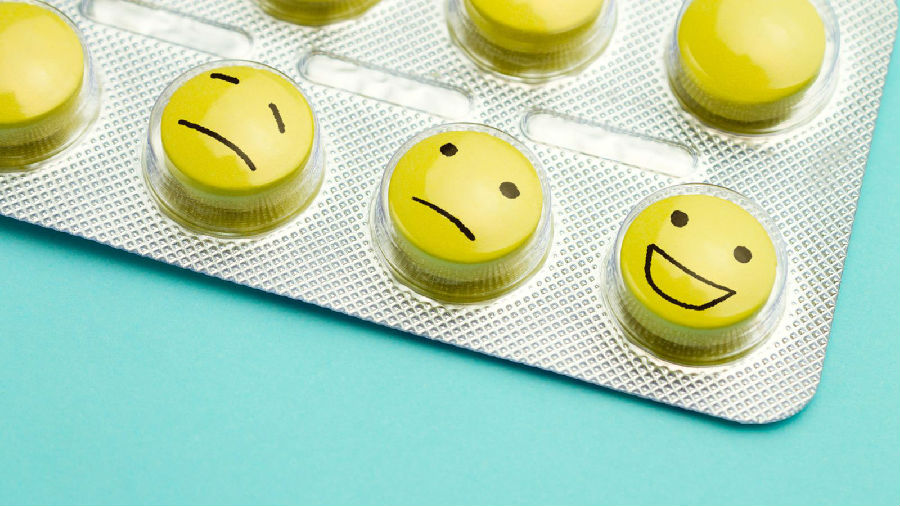The reasons it isn't aren't strictly medical.
這種藥物尚未獲批,并非完全出于醫(yī)療方面的原因。
Over the past three decades, pharmaceutical companies have conducted hundreds of trials for at least 10 antidepressants to treat severe PMS, social anxiety disorder, and any number of conditions.
過去三十年來,制藥公司已經(jīng)對(duì)至少10種抗抑郁藥進(jìn)行了數(shù)百次試驗(yàn),旨在治療嚴(yán)重的經(jīng)前綜合癥、社交焦慮癥等疾病。
What they've almost never done is test their drugs on the sickest people, those on the verge of suicide.
但他們幾乎從未在病情最嚴(yán)重的患者,即那些瀕臨自殺的人身上測(cè)試過這些藥物。
There are ethical considerations: Doctors don't want to give a placebo to a person who's about to kill himself.
這里面有出于道德方面的考慮,醫(yī)生不想給即將自殺的人服用安慰劑。
And reputational concerns: A suicide in a drug trial could hurt a medication's sales prospects.
此外,還涉及聲譽(yù)問題。如果在藥物試驗(yàn)過程中出現(xiàn)患者自殺事件,可能會(huì)損害藥物的銷售前景。
The risk-benefit calculation has changed amid the suicide epidemic in the U.S. From 1999 to 2016, the rate of suicides increased by 30 percent.
在1999年至2016年美國(guó)自殺事件頻繁出現(xiàn)期間,風(fēng)險(xiǎn)收益的計(jì)算發(fā)生了變化,自殺率增長(zhǎng)30%。
It's now the second-leading cause of death for 10- to 34-year-olds, behind accidents. (Globally the opposite is true: Suicide is decreasing.)
目前,10到34歲人的死亡原因中,自殺排名第二,僅次于意外事故的發(fā)生率。(而從全球范圍看,情況卻恰恰相反:自殺率正在下降。)
Growing economic disparity, returning veterans traumatized by war, the opioid crisis, easy access to guns—these have all been cited as reasons for the rise in America.
不斷增大的貧富差距、遭受戰(zhàn)爭(zhēng)創(chuàng)傷的退伍軍人、阿片類藥物危機(jī)、容易獲得槍支等,都被認(rèn)為是美國(guó)自殺率升高的原因。

There's been no breakthrough in easing any of these circumstances. But there is, finally, a serious quest for a suicide cure.
雖然上述各種問題還沒有任何緩解的方法,但好在人們終于開始認(rèn)真地探索治療自殺的途徑了。
Ketamine is at the center, and crucially the pharmaceutical industry now sees a path.
氯胺酮就是關(guān)注的焦點(diǎn),至關(guān)重要的是,制藥行業(yè)現(xiàn)在看到了一條道路。
The first ketamine-based drug, from Johnson & Johnson, could be approved for treatment-resistant depression by March and suicidal thinking within two years.
強(qiáng)生公司生產(chǎn)的第一種氯胺酮類藥物,可能在3月前獲批用于抗抑郁治療,并在兩年內(nèi)獲批用于自殺性思維的治療。
Allergan Plc is not far behind in developing its own fast acting antidepressant that could help suicidal patients. How this happened is one of the most hopeful tales of scientific research in recent memory.
健康醫(yī)療公司愛力根公司也緊隨其后,正在研發(fā)能夠幫助自殺患者的抗抑郁速效藥。這也是近些年來,最能使人懷抱希望的一則科研傳奇。
Dennis Charney, Dean of the Icahn School of at Mount Sinai in New York, works from an office filled with family pictures, diplomas, and awards from a long career in research.
紐約西奈山伊坎學(xué)院院長(zhǎng)丹尼斯·查尼所工作的辦公室中,擺滿了他和家人的照片、學(xué)位證書,以及長(zhǎng)期從事研究工作獲得的各種獎(jiǎng)項(xiàng)。
One thing on the wall is different from the rest: a patent for the use of a nasal-spray form of ketamine as a treatment for suicidal patients.
而辦公室的墻上掛著一件與眾不同的物品,那是用于治療自殺患者的一種噴霧式氯胺酮的專利證書。
The story of the drug is in some ways the story of Charney's career.
這種藥物的研發(fā)故事,在某種程度上也是查尼的職業(yè)生涯故事。


